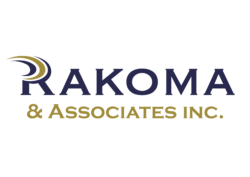Introduction
Public company auditors play a critical role in ensuring the integrity and transparency of financial reporting. The independence of auditors is paramount to maintain public trust and confidence in financial markets. However, concerns have been raised regarding the potential conflicts of interest that may compromise auditor independence. In light of these concerns, this article proposes a set of measures to address and enhance auditor independence in the public company sector.
The Current Landscape
Currently, public company auditors are appointed and paid by the companies they audit. While auditors are expected to maintain objectivity and independence, the financial relationship between auditors and their clients can create a perceived conflict of interest. Critics argue that auditors may be hesitant to report unfavorable findings or challenge management decisions that could jeopardize their relationship with the company.
The Proposal
To address these concerns, it is proposed that auditors of public companies should be appointed and compensated by an independent regulatory body. This would ensure that auditors have no financial ties to the companies they audit and can provide unbiased opinions on their financial statements. Some other measures can be put in place to address this concern:
1. Mandatory Rotation of Auditors: One effective way to address concerns over auditor independence is to implement mandatory rotation of auditors. This practice would require public companies to change their external auditors after a certain period, typically every 5-7 years. By doing so, it reduces the familiarity threat and prevents auditors from becoming too cozy or complacent with the management of the company they audit. Mandatory rotation would also encourage fresh perspectives and greater scrutiny, thereby enhancing the overall quality of audits.
2. Strengthening Oversight by Audit Committees: To bolster auditor independence, it is crucial to strengthen the role of audit committees within public companies. Audit committees should be composed of independent directors with relevant financial expertise. Their primary responsibility should be to oversee the selection, performance, and independence of auditors. This includes conducting regular assessments of auditor independence, evaluating the quality of audits, and addressing any potential conflicts of interest that may arise.
3. Prohibition of Non-audit Services: To further mitigate conflicts of interest, public company auditors should be prohibited from providing certain non-audit services to their audit clients. Non-audit services, such as consulting or advisory work, can create a significant independence threat, as auditors may be inclined to prioritize their consulting relationship over their auditing responsibilities. A clear separation between audit and non-audit services would help maintain the independence and objectivity of auditors.
4. Enhancing Regulatory Oversight: Regulatory bodies should play a more active role in overseeing auditor independence. They should regularly monitor compliance with independence requirements and impose appropriate penalties for non-compliance. Furthermore, regulators should actively engage with audit firms to provide guidance on best practices and emerging issues related to auditor independence.
5. Encouraging Industry-wide Collaboration: To promote a culture of independence, industry associations and professional bodies should encourage collaboration among auditors and share best practices. This can include hosting conferences, workshops, and forums where auditors can discuss challenges and exchange insights on maintaining independence. Collaboration can facilitate the adoption of standardized practices and help auditors navigate complex independence issues effectively.
Benefits of an Independent Regulatory Body
1. Enhanced Independence: By removing the financial relationship between auditors and their clients, the independence of auditors would be strengthened. Auditors would be more inclined to report any irregularities or questionable practices without fear of jeopardizing their financial interests.
2. Increased Public Confidence: An independent regulatory body would significantly enhance public confidence in the audit process. The public would have assurance that auditors are not influenced by the companies they audit and that financial statements are accurate and reliable.
3. Consistent Standards: An independent regulatory body could establish uniform standards and guidelines for auditors, ensuring consistency in the audit process. This would promote transparency and comparability in financial reporting, making it easier for investors and stakeholders to assess the financial health of public companies.
Implementation Challenges
While the proposal offers significant benefits, its implementation would not be without challenges. Some of the potential challenges include:
1. Resistance from Companies: Companies may resist the idea of losing control over the appointment and compensation of auditors. They may argue that an independent regulatory body may not have a deep understanding of their industry or specific business operations.
2. Funding and Resources: Establishing and maintaining an independent regulatory body would require adequate funding and resources. The costs associated with such an organization would need to be carefully considered and balanced against the benefits it would provide.
Conclusion
Addressing concerns over public company auditor independence is crucial for maintaining the credibility of financial reporting. The proposal to appoint and compensate auditors through an independent regulatory body offers significant benefits in terms of enhanced independence, increased public confidence, and consistent standards. While there may be implementation challenges, the potential long-term benefits outweigh the short-term hurdles. It is imperative for regulators, companies, and stakeholders to work together to ensure the independence and integrity of the audit process for the benefit of all.
Enhancing auditor independence is crucial to ensure the credibility and reliability of financial reporting in the public company sector. Mandatory rotation of auditors, strengthening the role of audit committees, prohibiting non-audit services, enhancing regulatory oversight, and promoting industry-wide collaboration are key measures to address concerns over auditor independence. By implementing these proposals, we can enhance public trust, maintain the integrity of financial markets, and safeguard the interests of investors and stakeholders.



